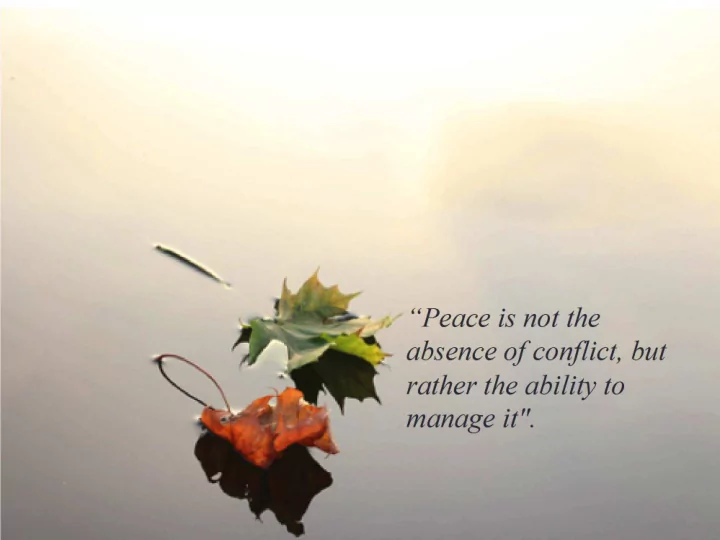

AHS Quality Health Summit Mindfulness: Finding Peace in a Frantic World Derek Luk, RN MN Senior Education Consultant, Quality and Patient Safety Education, AHS MBCT / MBSR facilitator
Disclaimer
Overview • Introduction of mindfulness • Review current literature • Mindfulness practice: 10-minute Awareness of breath • Stepping out of auto-pilot: 3- minute breathing space.
Paying attention, on purpose, in the present moment, non-judgmentally
Developing a different relationship with our thoughts, emotions, and body sensations.
Kindness plays an essential role
Awareness T raining 1. Direct: Notice and engage 2. Sustain: Explore and understand 3. Shift: Let go
Benefits • Improved sleep • Improved emotional regulation and impulse control • Decrease rumination and emotional reactivity • Improved concentration, memory, and learning.
Emerging Research Areas • Peri – post partum mental health • Adverse childhood experiences • PTSD • Chronic depression • Chronic pain • Addictions • ADHD • Cancer
https://centerhealthyminds.org/feature/neuroplasticity
https://centerhealthyminds.org/feature/neuroplasticity
https://centerhealthyminds.org/feature/neuroplasticity
How Meditation Reshapes Our Brains Holzel, Carmody, Vangel et al. (2011).
How Reshapes Our Brains Holzel, Carmody, Vangel et al. (2011).
Mindfulness is not: • About relaxing or clearing the mind. • About controlling thoughts. • Quick fix to unpleasantness. • Necessarily easy or enjoyable in the beginning.
What We Resist Often Persists
Mindfulness practice: 10-minute awareness of breath
Inquiry
Stepping Out of Auto-Pilot
3-Minute Breathing Space
Questions?
Resources Research • American Mindfulness Research Assoication: https://goamra.org/ Text • Mindfulness: An 8-week plan to finding peace in a frantic world. Mark Williams and Danny Penman.
References • Berry, D. R., Cairo, A. H., Goodman, R. J., Quaglia, J. T., Green, J. D., & Brown, K. W. (2018). Mindfulness increases prosocial responses toward ostracized strangers through empathic concern. Journal of Experimental Psychology. General, 147(1), 93-112. • Centre for Healthy Minds. https://centerhealthyminds.org/feature/neuroplasticity • Farb, N., Anderson, A., Ravindran, A., Hawley, L., Irving, J., Mancuso, E., . . . Segal, Z. V. (2017). Prevention of relapse/recurrence in major depressive disorder with either mindfulness-based cognitive therapy or cognitive therapy. Journal of Consulting and Clinical Psychology. • Hölzel, B. K., Carmody, J., Vangel, M., Congleton, C., Yerramsetti, S. M., Gard, T., & Lazar, S. W. (2011). Mindfulness practice leads to increases in regional brain gray matter density. Psychiatry Research , 191 (1), 36–43. http://doi.org/10.1016/j.pscychresns.2010.08.006
References • Kuyken, W., Hayes, R., Barrett, B., Byng, R., Dalgleish, T., Kessler, D., . . . Cardy, J. (2015). Effectiveness and cost-effectiveness of mindfulness-based cognitive therapy compared with maintenance antidepressant treatment in the prevention of depressive relapse or recurrence (PREVENT): A randomised controlled trial. The Lancet . • Lazar Labs: Stress, Meditation, Yoga, and the Brain. https://scholar.harvard.edu/sara_lazar/our-research
Recommend
More recommend